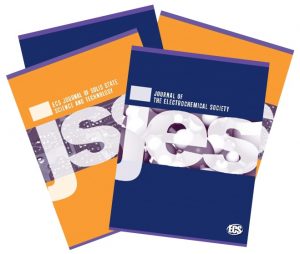 ECS prides itself on publishing high-quality, rigorously vetted content in its peer-reviewed journals, the Journal of The Electrochemical Society and the ECS Journal of Solid State Science and Technology.
ECS prides itself on publishing high-quality, rigorously vetted content in its peer-reviewed journals, the Journal of The Electrochemical Society and the ECS Journal of Solid State Science and Technology.
As one of the last remaining independent, nonprofit society publishers of electrochemical and solid state science and technology, ECS is committed to the provision of valuable and efficient services for its authors, whose research accelerates advances toward sustainability on a global scale.
Success in this endeavor requires the Society’s constant critical attention—to its authors, its publications, and vacillating trends in scholarly publishing.
To that end, ECS would like your feedback.
After over 115 years of peer-reviewed research, what is it that keeps authors publishing in ECS journals? In what ways do ECS journals excel?
To those who have opted to publish elsewhere, how might ECS journals adapt to meet your needs as an author? What aspects of ECS journals need reexamination?
Above all else, what do you look for in a scientific journal?
Whether you’re a proponent or a critic of ECS journals, please take a few minutes to tell us more.

Any feedback you are able to provide—positive or negative—will assist ECS in evaluating the strength and scope of its peer-reviewed journals.
Share your thoughts today to help shape the future of these publications!
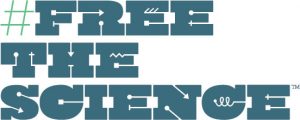 In celebration of its third annual Free the Science Week (April 1-7, 2019), the Society once again took down the paywall to the entire ECS Digital Library. For the duration of the week, readers had unrestricted access to more than 151,000 scientific articles and abstracts.
In celebration of its third annual Free the Science Week (April 1-7, 2019), the Society once again took down the paywall to the entire ECS Digital Library. For the duration of the week, readers had unrestricted access to more than 151,000 scientific articles and abstracts.

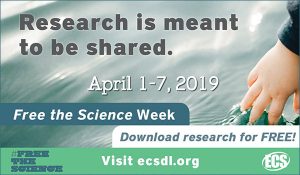

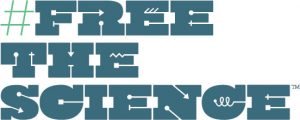
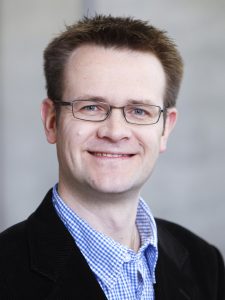 Thomas J. Schmidt is chair and professor of electrochemistry at ETH Zürich, and head of the Energy and Environment Research Division at Paul Scherrer Institute in Villigen, Switzerland, where he investigates various aspects of electrochemical energy conversion and storage. In 2010, he received the ECS
Thomas J. Schmidt is chair and professor of electrochemistry at ETH Zürich, and head of the Energy and Environment Research Division at Paul Scherrer Institute in Villigen, Switzerland, where he investigates various aspects of electrochemical energy conversion and storage. In 2010, he received the ECS  ECS celebrated
ECS celebrated 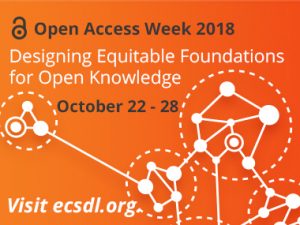



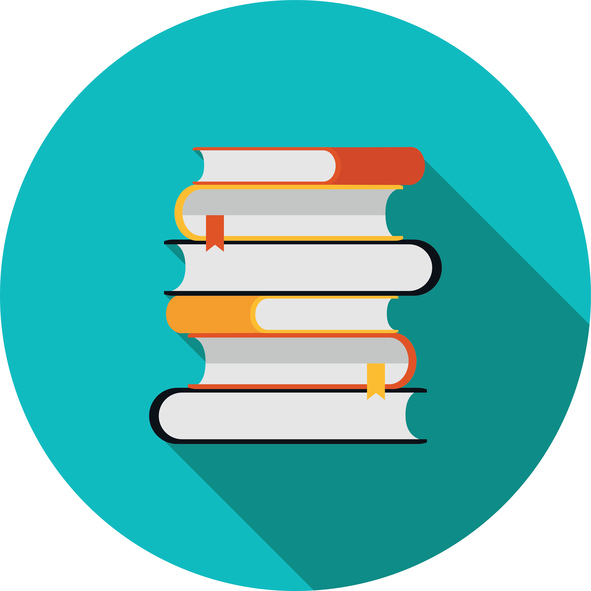 In the Fall of 2011, Sarah Mackenzie, the maid of honor at my wedding, was diagnosed with a rare form of ovarian cancer. Sarah and her family were motivated to learn as much as they could about the disease to advocate for her care. They weren’t scientists, but they started searching the literature for relevant articles. One evening, Sarah called us, angry. Every time she found an article that might be relevant to understanding her disease, she ran into a paywall requiring $15-$40 to access it. Public money had paid for the research, yet she was barred from making any use of it. Luckily, she had us. Most people in Sarah’s position don’t have the luxury of friends at wealthy academic institutions with subscriptions to the literature.
In the Fall of 2011, Sarah Mackenzie, the maid of honor at my wedding, was diagnosed with a rare form of ovarian cancer. Sarah and her family were motivated to learn as much as they could about the disease to advocate for her care. They weren’t scientists, but they started searching the literature for relevant articles. One evening, Sarah called us, angry. Every time she found an article that might be relevant to understanding her disease, she ran into a paywall requiring $15-$40 to access it. Public money had paid for the research, yet she was barred from making any use of it. Luckily, she had us. Most people in Sarah’s position don’t have the luxury of friends at wealthy academic institutions with subscriptions to the literature.